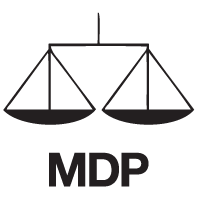President Nasheed’s legal team have complained that the Criminal Court has given them a mere two days to lodge an appeal against his conviction for ‘terrorism’.
In the latest blow to due process, the Criminal Court only released the trial proceedings to the lawyers on Thursday 19 March. The lawyers cannot lodge an appeal without the trial proceedings.
In new rules rushed in just before Nasheed’s trial, the appeal must be lodged within 10 days – in this case, by Sunday 22 March.
Commenting on the matter, President Nasheed’s legal team stated:
“The Criminal Court’s failure to provide the court proceedings in a timely manner is an obstruction of President Nasheed’s right to appeal.
“President Nasheed was denied the right to a fair trial. Now the regime is playing games to undermine his right to an appeal.”
UN High Commissioner for Human Rights Concerned Over ‘Rushed Trial’
Meanwhile, the chorus of international condemnation over President Nasheed’s conviction is growing louder.
The UN High Commissioner for Human Rights, Zeid Ra’ad Al Hussein, on Wednesday called on the Maldives to enable international jurists to observe an appeal after “a hasty and apparently unfair trial.”
Zeid said that the Criminal Court refused to provide Nasheed adequate time to prepare a defence, and the court’s decision not to call defence witnesses was “contrary to international fair trial standards.”
Zeid said President Nasheed must be given adequate time to prepare and present his defence during the appeal process.
“The Nasheed case places the Maldives judicial processes in a sharp spotlight. The flagrant irregularities in this case can still be rectified in the appeal process, and I urge the authorities to restore domestic and international confidence in the legal system by enabling international jurists to observe the appeal process,” he said.
UN Special Rapporteur Labels Trial ‘Mockery’ of the Constitution
Meanwhile, on Thursday the UN Special Rapporteur on the Independence of Judges and Lawyers Gabriela Knaul, blasted President Nasheed’s trial as a “mockery” of the Maldives’ constitution.
“I am extremely concerned about the lack of respect for the most basic principles of fair trial and due process during Mr. Nasheed’s criminal proceedings,” Knaul said.
“The series of due process violations that were reported to me since Mr. Nasheed’s arrest on 22 February is simply unacceptable in any democratic society.”
Large Rally in Male’ Against Yameen’s Rule
Thursday also saw a large rally in the Maldivian capital, Male’, composed of various political factions all aligned against President Yameen’s rule.
The Maldivian Democratic Party shared a stage with the Jumhooree Party, with whom it has recently forced an alliance.
Also involved in the rally was the religiously conservative Adhaalath Party – the latest political party to quit Yameen’s ruling coalition and join forces with the opposition.
Of the four parties that made up Yameen’s coalition after the 2013 presidential elections, only Yameen’s PPM and the smaller Maldivian Development Alliance remain, with a combined public support estimated at below 25%.
Background Information
President Nasheed is the Maldives’ first democratically-elected president. He was elected into office in 2008, bringing to an end the 30-year dictatorship of Maumoon Abdul Gayoom.
In February 2012, President Nasheed was ousted in a coup, after mutinying police and army personnel overrun the institutions of state.
In the first round of presidential elections in 2013, President Nasheed received 45% of the vote to Yameen’s 25%. But the Supreme Court constantly meddled in the election – repeatedly annulling, cancelling and postponing the ballot in order to favour the candidacy of Yameen, Gayoom’s half-brother, who went on to assume the presidency.
On January 24 2015, Gasim Ibrahim, who polled third in the first round of the 2013 elections with 24% of the vote, and his party the JP, quit Yameen’s coalition government and sided with President Nasheed and his party, the MDP.
In quitting the governing coalition, Gasim cited President Yameen’s continued attempts to undermine the rule of law and institutions of democracy, including the sacking and harassment of members of the Elections Commission.
On March 8 2015, the religiously conservative Adhaalath Party quit President Yameen’s ruling coalition because of the President’s increasingly authoritarian actions.
Of the four political parties that made up the ruling coalition, only Yameen’s PPM and the small Maldivian Development Alliance remain.
On February 10 2015, Yameen’s Defense Minister, Colonel (Ret.) Mohamed Nazim, was arrested following a power struggle within government. He faces charges of treason.
ENDS
